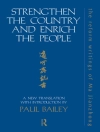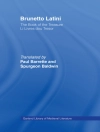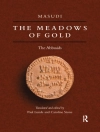In ‘Adventures in Criticism, ‘ Arthur Quiller-Couch embarks on a captivating exploration of literary criticism, illuminating the complexities of interpreting literature through a series of engaging essays. His prose is characterized by rich, evocative language and a conversational tone that invites readers into the intricacies of literary appreciation. Quiller-Couch deftly traverses various literary movements and historical contexts, offering fresh perspectives on established classics while also highlighting the importance of personal engagement with texts. This work not only serves as an examination of literature but also as a reflection on the role of the critic in shaping the perception of literary art. Arthur Quiller-Couch, a prominent figure in early 20th-century literature and criticism, was well-placed to deliver this unique collection. His tenure as a professor of English literature at the University of Cambridge and his experiences as an editor and anthologist allow for an authoritative yet accessible voice in literary discourse. Influenced by the rich literary traditions of his time, Quiller-Couch’s insights draw on a blend of scholarly rigor and imaginative thought, making his observations all the more resonant. ‘Adventures in Criticism’ is an essential read for anyone seeking to deepen their understanding of literature and its criticism. Quiller-Couch invites readers to embark on their own exploratory journeys, urging them to appreciate the nuanced relationship between text and reader. This book promises not only enlightenment but also a profound appreciation of the literary arts.
Over de auteur
Arthur Quiller-Couch, born in Bodmin, Cornwall on November 21, 1863, was a prolific British writer, editor, and critic with significant contributions to English literary tradition. Known by his pseudonym ‘Q’, Quiller-Couch attended Clifton College, Oxford University, and later held a professorship at Cambridge. His versatility spanned across genres such as fiction, poetry, and anthologies. A champion of English prose style, Quiller-Couch’s ‘Adventures in Criticism’ (1911) exemplifies his analytical prowess and his engaging, accessible explication of literary works. His commitment to the development of literature is also evident from his editing of the expansive ‘Oxford Book of English Verse’ (1900), which remained a definitive compilation for decades. His literary style, deeply embedded in the Romantic tradition, often reflected a nostalgic charm, underpinned by vivid characterizations and scenic descriptions, seen vividly in his fiction works such as the novels set in his beloved Cornwall. As a literary figure, Quiller-Couch’s legacy endures through his esteemed lectures, essays, and the ‘Art of Writing’ which continue to inspire literary scholarship and the craft of writing itself. He passed away on May 12, 1944, leaving a lasting imprint on the landscape of English literature.












